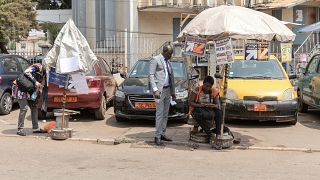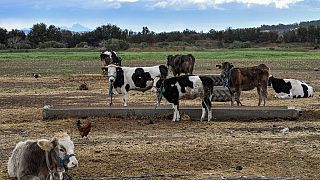Republic of the Congo
The members of a rice repackaging network were caught red-handed by the agents of trade and commercial fraud repression in the Republic of Congo in this warehouse transformed into a makeshift factory.
"In this warehouse there are food products and chemical products. The products previously imported had no problem. The poor preservation has caused the product to suffer a loss of product value. There is a significant presence of insects in the products. To avoid losing, what they do, they open, and remove these negative particles, and once it's removed, they repackage it and put it back in the bags." said Belly Fugain Bialoungoulou, departmental director of diversity and fraud control.
This dismantling of the repackaging network comes a week after the suspension of the sales of a quality of rice from China suspected of being unfit for consumption
In response to these accusations, the AFRI TRADING CONGO company asserts that this rice repackaging operation is legal and that it usually takes place in the presence of the relevant authorities, which was formally denied by the directorate of commercial fraud control, which asserted that no law allows for this practice.
"Let them show me the documents. When I look at all three laws that we use, I didn't see a statement like that. We do not repackage the product, but we do repackage the container of the product. That's when it's accepted that we repackage the item so that we don't lose the value of the product." added Mr. Bialoungoulou.
The annual cost for rice imports into Congo is estimated at more than 15 million euros, or about 10 billion CFA francs.













00:53
Brazil eyes global food leadership amid U.S.-China trade tensions
Go to video
Oligui Nguema: A breakthrough or continuity for Gabon? [Business Africa]
01:02
First payments made to white farmers affected by land reforms in Zimbabwe
Go to video
A booming market, but lacking data: Africa's challenge [Business Africa]
01:54
Uganda: the infiltration of plastics into agricultural fields and food raise concern
Go to video
The Okwelians: Unlocking New Economic Paths for Cameroon [Business Africa]